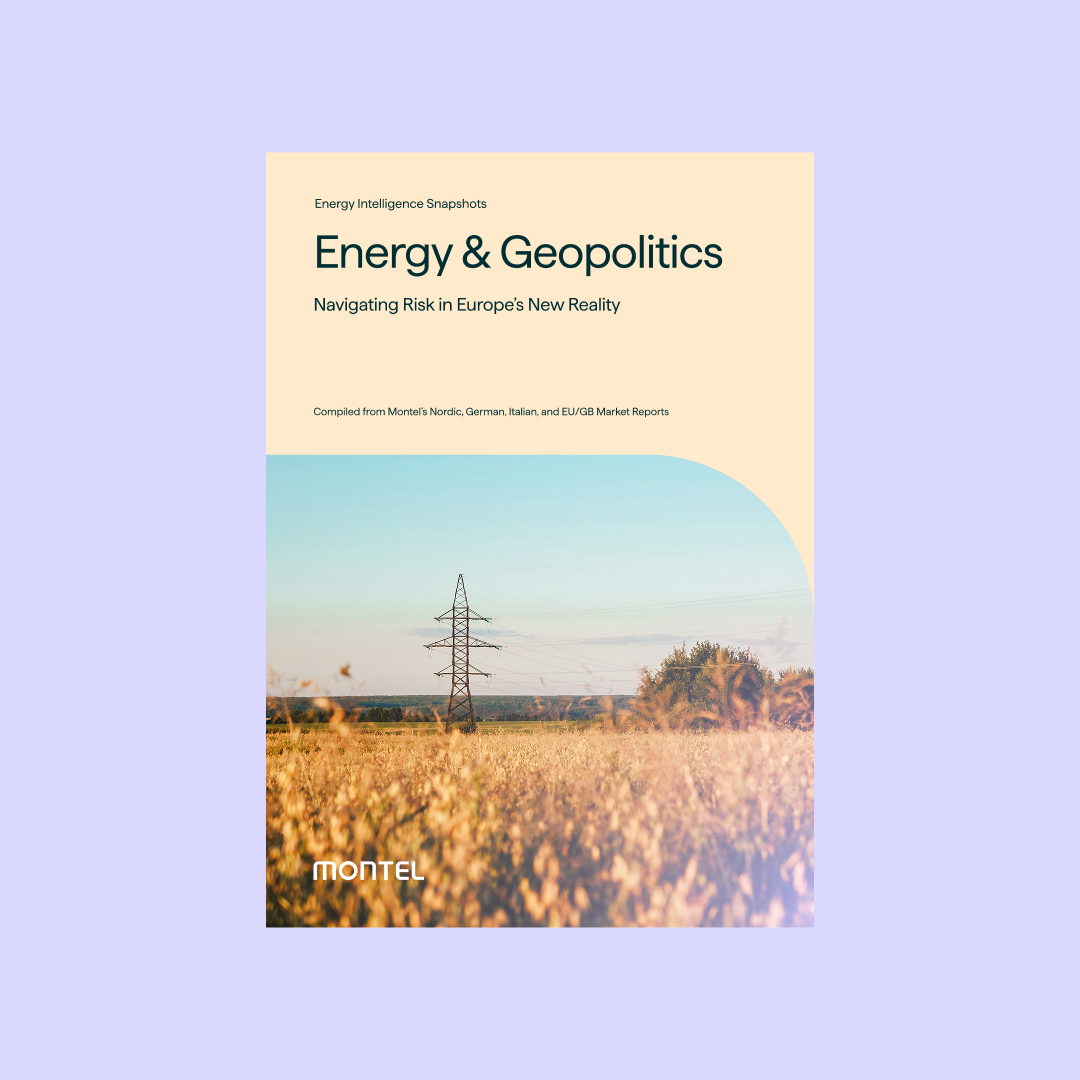Energy and geopolitics: navigating risk in Europe's new reality
Europe’s energy sector is not driven by climate goals alone. Geopolitics continue to play a direct role in shaping supply chains, prices, and policy. National energy strategies must now balance security of supply, independence from politically sensitive sources and affordability for consumers alongside decarbonisation commitments.
Our free Energy Intelligence Snapshot, Navigating CSR requirements in the energy sector, provides you with an overview of the key political factors shaping energy markets and how that balance will shape Europe's energy future.
Learn about the latest impacts of the Russia-Ukraine war, how Chinese supply chains have a big role to play and how individual European nations are prioritising different responses to emerging threats.

Key topics covered:
The Russia–Ukraine war and its ongoing impact on energy
Understand how the EU's refusal to rely on Russian gas imports is creating a new marginal price setting fuel in LNG, what this has done to natural gas prices across Europe and the UK and how gas storage levels have been impacted.
China and the challenge of de-risking
See the gap between diversification policies and reality. With much of Europe's energy transition dependent on affordable Chinese components, reports of kill-switches and hidden components are placing the need to diversify supply chains in the spotlight.
LNG competition and global supply volatility
Learn about the factors which mean Europe is now a major buyer in global LNG markets, how this is contributing to a major global shortfall and how Italy is increasingly dependent on the fuel.
Dunkelflaute and geopolitical risk to renewable integration
Get the inside track on how intermittent renewable generation can contribute to energy price spikes, ensuring that fossil-fuel generation will continue to be required as back up even as countries continue to pursue decarbonisation policies in order to mitigate climate change.
Policy fragmentation and national-level responses
Develop your understanding of national policies as Germany looks to prioritise hydrogen-fuelled power generation, Nordic countries continue to invest in renewables and France seeks to lean on cross-border trade to manage emerging risks.
Don’t let your business fall behind. Download this resource now and learn about the key factors impacting Europe's political energy landscape.